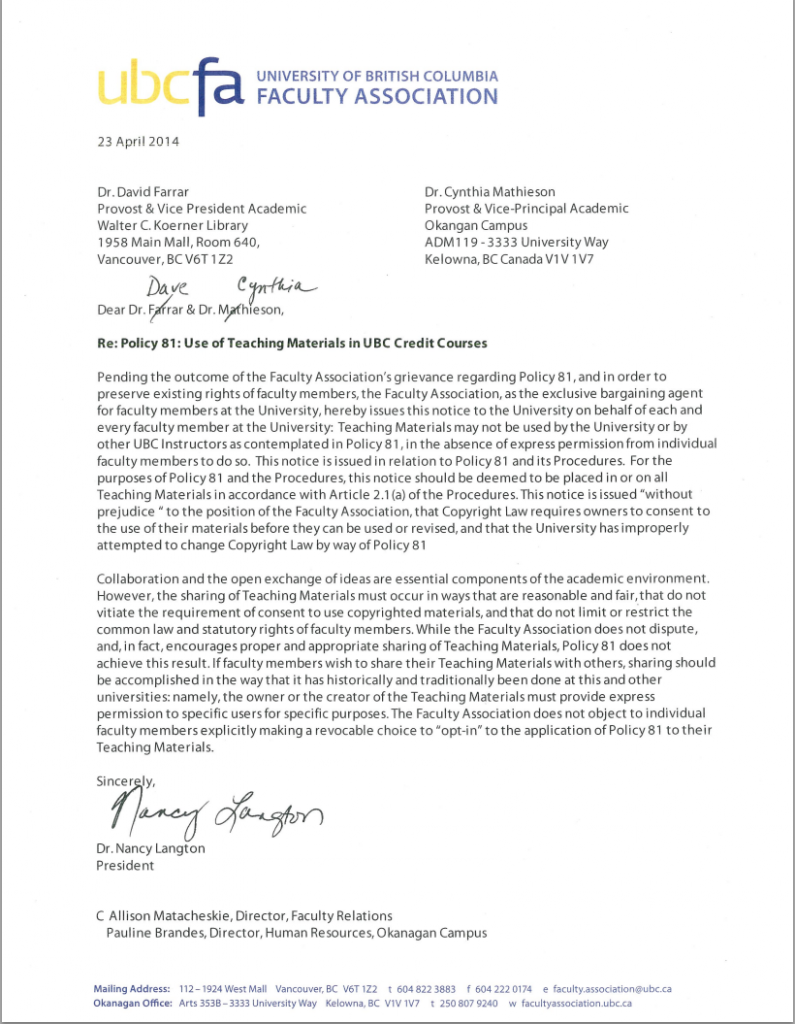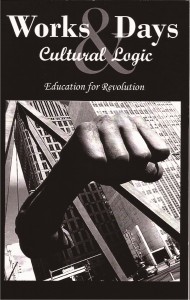In today’s issue of The Province, columnist Michael Smyth drops some startling numbers about teacher supply in British Columbia (“Let’s all do the math on BC’s teacher surplus”).
There’s no doubt it’s tough for new teachers to find full time positions in the province, it’s tough to even get regular work as a teacher-on-call (TOC) in some districts. I know this from personal experience as professor in UBC’s teacher education and because the guy who cuts my hair received his BEd from UBC four years ago.
Here are the numbers, according to Smyth:
- number of people currently holding a valid BC teaching certificate: 69,400
- number of full-time-equivalent teachers in the public school system: 30,101.
Of course, as Smyth points out, some of the folks in the first group are not in the public school classroom, but are employed educators, either as administrators in public schools or as teachers in independent schools, etc.
Anyway you cut it, there is a oversupply of credentialed teachers in relation to available jobs in BC. This is circumstance BC educators and teachers educators have been aware of for many years, even as provincial universities have continued to graduate about twice as many BEds per year as there are province-wide vacancies (about 1,800 teacher education grads per year for about 900 teaching vacancies per year). In 1999, there were 5,000 active TOCs and a British Columbia Teachers’ Federation survey indicated that on average TOCs work worked about 73 days per year (40% of the school year) and earned about $11,000.00 per year (20% of average teacher salary).
The Invisible Hand
Smyth brings up the teacher supply issue in the context of the latest round of labor tensions between the government and the BCTF, asking “when there’s a surplus of workers, why would any right-minded employer offer premium wages when they’re swamped with resumés and job applications?”
That’s a fair question, but then again, if we’re looking to the good old invisible hand of the market to provide us with some explanations, how does one explain the fact that BEd students keep flowing into teacher education programs when job prospects are so bleak?
One one hand we could argue that Adam Smith’s metaphor for a self-regulating marketplace is not all it’s crack up to be, but more important is the fact is that many people are highly motivated to become teachers. When I graduated with an education degree in 1978, the job market for teachers was similarly poor. I worked as a substitute teacher, went to grad school, and ultimately had to move hundreds of miles away from home for my first full time classroom position.
Symth says that it’s “insane” for BC universities to train teachers the province doesn’t need, but another way looking at what’s happening is that provincial universities are (and have been) merely responding to a market demand for teacher education programs. Remember, post-secondary education in BC has been subjected to a steady stream of neoliberal economic policies from the governing BC Liberals, which has marketized every area of the public sector.
Do we need to allow for more “self-regulating behaviour of the marketplace” or do we need a centralized “five year plan” for the teacher labour market? As usual that kind of dualist thinking doesn’t help much because reality is much more complex.
The Finland Option
I appreciate Symth’s suggestion that British Columbia “should do what Finland did: drastically reduce the number of available spaces in university education programs.”
About six years ago the Faculty of Education at UBC embarked on a remake of it’s teacher education program, using the title CREATE (Community to Reimagine Educational Alternatives for Teacher Education). The “new” teacher education program has been in place over year now, and while there have been changes within the program, its basic structure and length look quite familiar. There are topical cohort programs with specialized emphases (e.g., arts-based; problem-based learning; IB, etc.), various streams for practica, but it remains, for the most part, a one-size-fits all model (post-baccalaureate, 12 month BEd program, with a 2 year option for elementary teachers).
At the beginning of the UBC CREATE endeavour (circa 2006), the social studies education faculty proffered what amounted to a “Finland option,” which was motivated in significant ways by the oversupply of socials teachers (as well as the increased number of part-time sessional instructors in the program). In short, we outlined a program where preservice social studies teachers would earn a masters degree, emphasizing advanced coursework in history or geography along with education courses necessary for an initial teaching license (essentially what is known in the US as a Master of Arts in Teaching program). At the time we had five full time faculty members ready and willing to put together a world class program working in collaboration with other departments; the numbers of students in social studies education would have been drastically reduced, and standards increased. This proposal was apparently too creative and was given no serious consideration.
Other proposals that would have dramatically re-structured the UBC approach to teacher education, such as adopting a 4-year undergraduate teacher education program, were also rejected.
Curriculum change in universities is a deliberate process to say the least, but I think this case illustrates what happens when the bottom-line rules. To say that the UBC budget is opaque is an understatement. Whether we’re dealing with the “historical budgeting” approach of the past or the decentralized budgeting of the present, budget messages to faculty are always muddled, muddy, mystifying and obfuscated. UBC always facing cuts on the academic side.
But there’s more to the story. We can’t contemplate improving the quality teacher education programs without also considering the financial contexts internal and external to the university. When it comes to program form and content there are the sometimes competing interests of government regulation in teaching profession, views from the profession itself, and from scholars of teaching and teacher education. And to complicate matters university faculty have less and less control over the academic content of courses and programs, with the demise of shared governance and university administrators increasing desire to commodify learning (see UBC’s Policy 81, for example).
Ten years ago the UBC teacher education enrolment was in the 800 per year range. Last year there were 935 applicants to the program and 632 were admitted.
Does that mean we’re headed in the right direction?

